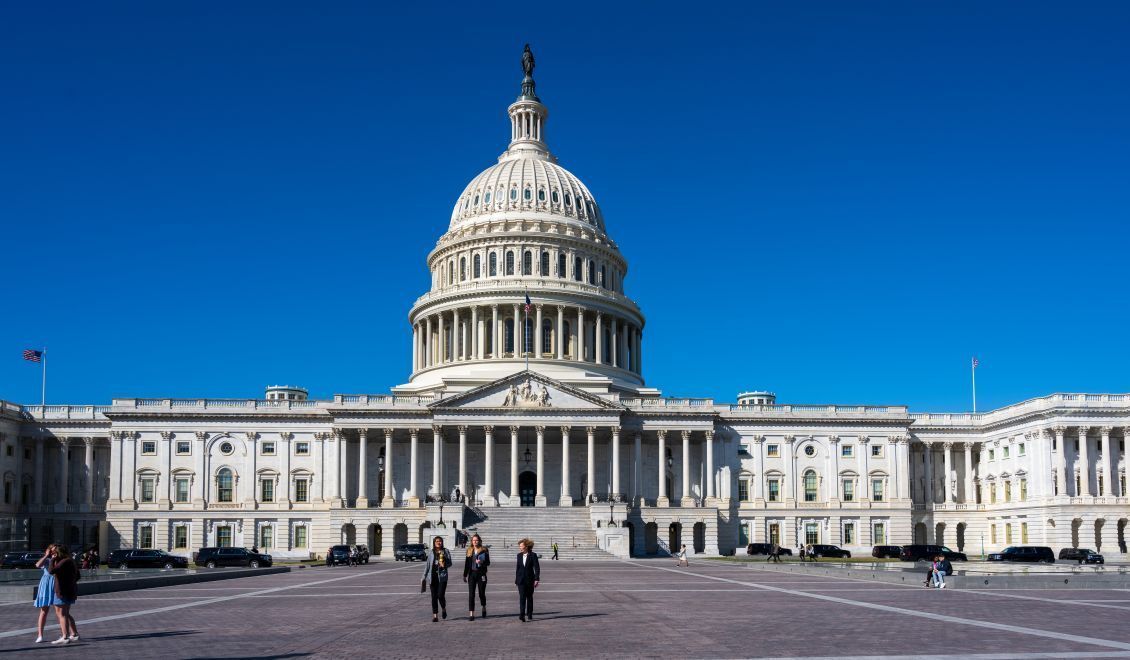With the results from the 2024 General Election decided, it is confirmed there will be a Republican party government trifecta in the 119th Congress. Due to the slim Republican majority in both chambers, Congress will require complete party unity or some bipartisan support to pass major legislation such as appropriations or tax legislation.
In the meantime, Congress is in a tight window after returning on November 12 for the final months of the 118th Congress, in the “lame duck” session. With the quickly approaching December 20 government funding deadline and November/December holiday recesses, Congress has little time to reach agreement on appropriations and disaster recovery funding.
Throughout this transition period, Enterprise continues to engage with policymakers, including incoming members of the 119th Congress, leadership in both the House and Senate, and Trump Administration transition teams to advance affordable housing and community development policies. In a statement released last month, Enterprise CEO and President Shaun Donovan affirmed that Enterprise will continue its work to ensure affordable housing remains at the forefront of the national policy agenda.
Lame Duck Opportunities
The federal government is currently operating under a Continuing Resolution (CR) passed in September that provides funding through December 20. After that deadline, Congress will need to pass all 12 appropriations bills, either as a package of spending bills known as an omnibus or individually, pass another CR, or face a government shutdown.
An omnibus could serve as a legislative vehicle for a tax package that may include key Low-Income Housing Tax Credit (Housing Credit) provisions from the bicameral and bipartisan Affordable Housing Credit Improvement Act, or AHCIA, (H.R. 3238/S. 1557), as well as provisions from the New Markets Tax Credit Extension Act (H.R. 2539/S. 234), and the Neighborhood Homes Investment Act (H.R. 3940/S.657).
The ACTION Campaign, a coalition of national, state, and local affordable housing stakeholders co-chaired by Enterprise and the National Council of State Housing Agencies, sent a letter to Congress signed by 2,500 businesses, nonprofits, and public agencies urging them to enact legislation that includes two key Housing Credit priorities from AHCIA:
- Expand Housing Credit authority by 50%, and at a bare minimum reinstate the 12.5% cut to the Credit suffered this year.
- Enhance the use of existing private activity bond authority for rental housing production by lowering the bond financing threshold from 50 percent to 25 percent.
Disaster Recovery
Lawmakers are also working to finalize a bipartisan disaster relief bill, with hopes of attaching it to must-pass year end legislation. A key component of this effort is the $100 billion emergency funding request from the Biden-Harris Administration, which aims to address a wide range of recovery needs across multiple sectors, including housing, transportation, agriculture, and health services, with allocations for over 12 federal agencies involved in disaster recovery. The request includes $12 billion for HUD’s Community Development Block Grant Disaster Recovery (CDBG-DR) program. This funding is intended to help address the aftermath of recent disasters, particularly Hurricanes Helene and Milton, and support recovery in more than 20 states and territories impacted by disasters in 2023 and 2024.
In addition to the CDBG-DR funding, the request includes $40 billion for FEMA’s disaster relief fund and $1.7 billion for the Small Business Administration’s disaster loan program. The National Flood Insurance Program (NFIP) is running low on funds and has been highlighted as needing additional support to maintain operations and prevent further debt.
These negotiations also present an opportunity for advocates of the Reforming Disaster Recovery Act (S. 1686) to push for streamlined disaster recovery processes, potentially aligning with the urgent need for efficient use of federal resources and timely aid to communities in distress. With bipartisan support historically found in disaster relief efforts, there is hope that the necessary reforms to disaster recovery can be integrated into the broader funding discussions.
Potential Tax Package
The lame duck could also provide an opportunity for Congress to pass a tax package, with the above-mentioned disaster supplemental as the most likely legislative vehicle. The Federal Disaster Tax Relief Act of 2023 (H.R. 5863) could serve as the basis for a tax title to get included in a disaster supplemental. This bill passed the House almost unanimously earlier this year and was also included within the Tax Relief for American Families and Workers Act (H.R. 7024), sometimes known as “Smith-Wyden,” a tax package that passed the House overwhelmingly in late January and also included two provisions inspired by the AHCIA.
Enterprise has been advocating for several provisions to be included in any tax package that Congress negotiates during the lame duck and will continue to urge Congress to include a supplemental disaster allocation of Housing Credits. Congress has included supplemental disaster Housing Credit allocations in prior legislation, such as in the Fiscal Year 2021 (FY21) omnibus, which aided 11 states and Puerto Rico; in the FY20 Continuing Resolution, which helped rebuild California after wildfires; and in the Emergency Economic Stabilization Act of 2008, which helped rebuild after Hurricane Ike and floods across the Midwest. Enterprise is also encouraging Congress to include the two AHCIA-inspired Housing Credit provisions that were in the Smith-Wyden tax package and would have financed the creation of an additional 200,000 affordable homes nationwide.
Enterprise supports the inclusion of a disaster allocation of New Markets Tax Credits (NMTCs) for areas impacted by recent hurricanes. We support modeling such an allocation of disaster NTMCs on the highly successful Gulf Opportunity Zones (GO Zones), created to help rebuild Louisiana and other states impacted by Hurricanes Katrina and Rita in 2005 by authorizing a supplemental allocation of $1 billion in disaster NMTCs.
Lastly, Enterprise will be urging Congress to include $500 million for a CDFI Disaster Response Fund for grants to certified CDFIs serving areas that were impacted by federally declared disasters in 2023 and 2024. This Disaster Response Fund would be modeled on the successful Rapid Response Program, a $1.2 billion initiative that helped communities impacted by the pandemic.
Committee Leadership in the 119th Congress
While the election outcome impacts control of the House and Senate, it also has implications for committee leadership and makeup.
House Appropriations Committee
- Representatives Tom Cole (R-Okla.) and Rosa DeLauro (D-Conn.) will remain as Chair and Ranking Member, respectively, of the House Appropriations Committee.
- Representatives Steve Womack (R-Ark.) and Mike Quigley (D-Ill.) will remain as Chair and Ranking Member, respectively, of the Appropriations Subcommittee on Transportation, Housing, and Urban Development.
- There are several seats open in the House Appropriations Committee as a result of the election. This includes three Ranking Member positions in other subcommittees (Commerce, Justice, and Science; Homeland Security; and State and Foreign Operations).
House Financial Services Committee
- Representative Patrick McHenry (R-N.C.), Chair of the House Financial Services Committee, is retiring at the end of the 118th Congress. Members vying for this position include:
- French Hill (R-Ark.), current chair of the Digital Assets, Financial Technology, and Inclusion Subcommittee;
- Frank Lucas (R-Okla.), current chair of the Capital Markets Subcommittee;
- Andy Barr (R-Ky.), current chair of the Financial Institutions and Monetary Policy Subcommittee; and
- Bill Huizenga (R-Mich.), current chair of the Oversight and Investigations Subcommittee
- Representative Maxine Waters (D-Calif.) will serve as the Ranking Member of the full House Financial Services Committee.
- Representatives Warren Davidson (R-Ohio) and Emmanuel Cleaver (D-Mo.) will continue to serve as the Chair and Ranking Member, respectively, of the Housing and Insurance Subcommittee.
House Ways and Means Committee
- Current Chair Jason Smith (R-Mo.) and Ranking Member Richard Neal (D-Mass.) will remain in their positions in the 119th Congress.
Senate Leadership
- Senator John Thune (R-S.D.) has succeeded Mitch McConnell (R-Ky.) as Senate Republican Leader and Senator Chuck Schumer (D-N.Y.) will serve as Minority Leader.
Senate Appropriations Committee
- Current Appropriations leadership, Senators Susan Collins (R-Maine) and Patty Murray (D-Wash.), are expected to be Chair and Vice Chair of the committee in the next Congress. However, with Senator McConnell stepping down from his leadership role, it is rumored that he may make a bid for the full appropriations Chair position.
- The general election also led to decent shakeups in Senate subcommittee leadership. Senator Jon Tester (D-Mont.) lost his race in the general election, leaving an opening for the Vice-chair position for Defense appropriations subcommittee. It is expected that current THUD chair Brian Schatz (D-Hawaii) will make a bid for this position.
- In the event that Senator Schatz becomes Defense subcommittee Ranking Member, three members are likely interested in the THUD gavel, including:
- Chris Murphy (D-Conn.), current Homeland Security subcommittee Chair
- Chris Van Hollen (D-Md.), current Financial Services and General Government (FSGG) subcommittee Chair
- Chris Coons (D-Del.), current State and Foreign Operations Chair.
- In the event that Senator Van Hollen becomes THUD Ranking Member, Chris Coons or Martin Heinrich (D-N.M.) could become FSGG Ranking Member.
Senate Finance Committee
- The leadership of the Senate Finance Committee is expected to remain the same, with the exception of the party in power: the current chair, Senator Ron Wyden (D-Ore.), will become the Ranking Member, while the current ranking member, Senator Mike Crapo (R-Idaho), will become chair.
- Six Democrats on this committee are not returning for the 119th Congress, which means that Democrats will have to replace approximately half of their members on this committee.
Senate Banking, Housing, and Urban Affairs Committee
- Four Democrats on this committee will not be returning for the 119th Congress, including the current chair, Senator Sherrod Brown (D-Ohio).
- Because of existing committee assignments of several other senior Democrats, the current number four Democrat on this committee, Elizabeth Warren (D-Mass.), is expected to become ranking member. (Senator Jack Reed (R.I.) prefers to retain his spot as the top Democrat on the Armed Services Committee, while Senator Mark Warner (Va.) wants to remain as the top Democrat on the Intelligence Committee.)
- At least one Republican on this committee will not return: Vice President-elect JD Vance (R-Ohio). Another, Senator Bill Hagerty (R-Tenn.), has been floated for several cabinet positions, so may also vacate his seat. The current Ranking Member, Sen. Tim Scott (R-S.C.) has publicly declined to serve in the Administration, in favor of becoming committee chair.
To stay up to date on lame duck negotiations and 119th Congress developments, sign up for Enterprise’s Today in Housing and Capitol Express newsletters.


